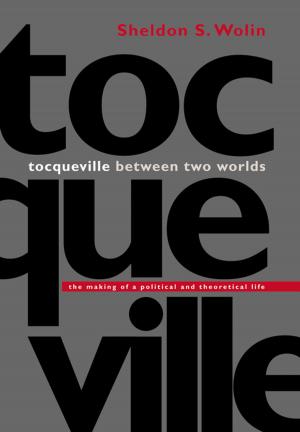The Seduction of Unreason
The Intellectual Romance with Fascism from Nietzsche to Postmodernism, Second Edition
Nonfiction, Religion & Spirituality, Philosophy, Political, Social & Cultural Studies, Political Science| Author: | Richard Wolin | ISBN: | 9780691192109 |
| Publisher: | Princeton University Press | Publication: | April 30, 2019 |
| Imprint: | Princeton University Press | Language: | English |
| Author: | Richard Wolin |
| ISBN: | 9780691192109 |
| Publisher: | Princeton University Press |
| Publication: | April 30, 2019 |
| Imprint: | Princeton University Press |
| Language: | English |
Ever since the shocking revelations of the fascist ties of Martin Heidegger and Paul de Man, postmodernism has been haunted by the specter of a compromised past. In this intellectual genealogy of the postmodern spirit, Richard Wolin shows that postmodernism’s infatuation with fascism has been extensive and widespread. He questions postmodernism’s claim to have inherited the mantle of the Left, suggesting instead that it has long been enamored with the opposite end of the political spectrum. Wolin reveals how, during in the 1930s, C. G. Jung, Hans-Georg Gadamer, Georges Bataille, and Maurice Blanchot were seduced by fascism's promise of political regeneration and how this misapprehension affected the intellectual core of their work. The result is a compelling and unsettling reinterpretation of the history of modern thought. In a new preface, Wolin revisits this illiberal intellectual lineage in light of the contemporary resurgence of political authoritarianism.
Ever since the shocking revelations of the fascist ties of Martin Heidegger and Paul de Man, postmodernism has been haunted by the specter of a compromised past. In this intellectual genealogy of the postmodern spirit, Richard Wolin shows that postmodernism’s infatuation with fascism has been extensive and widespread. He questions postmodernism’s claim to have inherited the mantle of the Left, suggesting instead that it has long been enamored with the opposite end of the political spectrum. Wolin reveals how, during in the 1930s, C. G. Jung, Hans-Georg Gadamer, Georges Bataille, and Maurice Blanchot were seduced by fascism's promise of political regeneration and how this misapprehension affected the intellectual core of their work. The result is a compelling and unsettling reinterpretation of the history of modern thought. In a new preface, Wolin revisits this illiberal intellectual lineage in light of the contemporary resurgence of political authoritarianism.















